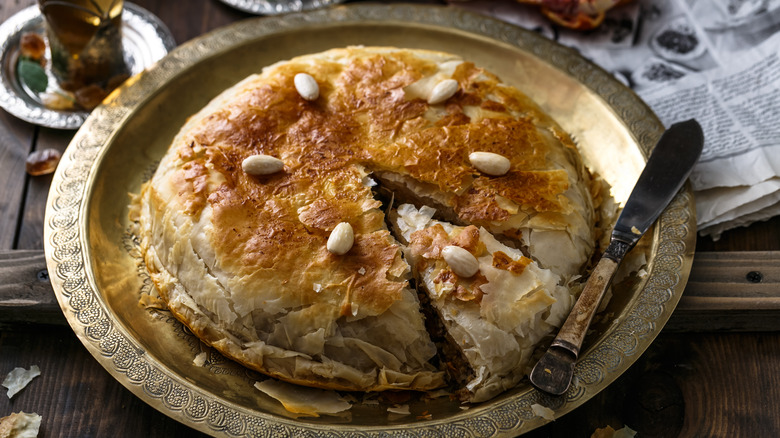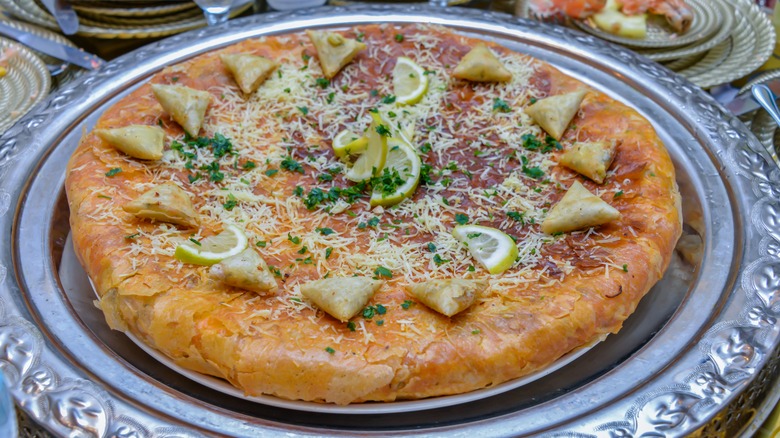The Unexpected Meat Used To Make Traditional Pastilla
It's more than likely that if you're living your life to the fullest and not slouching on the many delicious flavors of the world, then you have had the pleasure of experiencing the wonderful pastilla in all of its savory-sweet glory. Pastilla is a light and flakey pie dish dusted with sugar and cinnamon to contrast the deeply spiced and savory braised meat inside that few pastries can match. Its popularity has grown enough for pastilla to begin to gain global recognition, and with its unique flavor combinations and distinctive meats is it any wonder why?
Pastillas, b'stilla, or bastila are a traditional Moroccan dish that is very popular in many regions around the Iberian peninsula and North Africa, particularly Morocco and Algeria, per The Maydan. According to Travel Channel, pastilla can be filled with any kind of meat (or even no meat at all – there are many alternatives for meat and dessert versions of pastilla) but they are typically filled with some kind of poultry. It's common to see chicken, quail, and cornish game hen meat in a pastilla, but traditionally pastilla was filled with squab or pigeon meat.
Pigeons in pastilla
Although not a very popular meat in the modern American diet, certain regions of Morocco, other regions in North Africa, and other parts of the world have been raising fledgling pigeons for squab for literally thousands of years, per Atlas Obscura and Mental Floss. Not only is the pigeon meat slowly braised in a variety of rich seasonings and spices, the eggs are mixed with flakey fried almonds to round out the pies.
Pastilla is a unique mesh of sweet and savory, bridged together by the distinct utility of blending and blurring spices together, Atlas Obscura describes the final product as the love child of baklava and mincemeat pie. Although not entirely necessary the pigeon meat does add an extra layer of unique flavor that other meats like chicken cannot. Pigeonpedia classifies the gamier pigeon meat a perfect match for the various spices and the werqa or warqa pastry.

